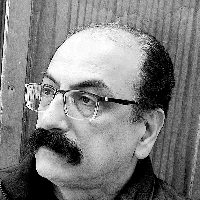A Study of “the Imaginal World” in Samad Behrangi's Stories from the Perspective of Henry Corbin’s Phenomenology (Case Study: “Talḵhun” and “the Sigh”)
Author(s):
Article Type:
Research/Original Article (دارای رتبه معتبر)
Abstract:
The “Imaginal world” is the link between the material and immaterial universes. In other words, this world is an interworld whose events and elements are situated between the material and the intellectual worlds. Henry Corbin, by combining the phenomenology of Husserl (and other philosophers of this school) with the views of the great Eastern thinkers, especially with those of Shaikh al-Ishraq’s, discovers this world. He, then, examines different texts from the point of view of this interworld. Among the texts that can be studied by the criteria of the imaginal are the stories of Samad Behrangi, an author who is generally known to be influenced by Marxist thought and is considered as one of the most prominent figures in children's literature. This paper employs a descriptive-analytical method to examine the elements of the imaginal in two of Behrangi’s stories, “Talḵhun,” and "the Sigh". According to the findings of this study, some of the elements of the imaginal in these stories include, the subjective nature of time, disobeying physical geography, defying the properties of the matter, following the imagination in gaining understanding and awareness, embodiment and embodiment of meanings, and conscious action emanating from the non-conscious. Based on the present research, many of Behrangi's stories will fall outside the Marxist thought.
Keywords:
Language:
Persian
Published:
Interdisciplinary Studies on Literature, Arts and Humanities, Volume:1 Issue: 2, 2022
Pages:
1 to 22
https://magiran.com/p2450808
مقالات دیگری از این نویسنده (گان)
-
Meaning therapy of religious rites in Musmavi based on Frankel's theory
Majid Barari Bazarmahaleh, Aliakbar Bagheri Khalili *, Masoud Rouhani, Siavash Haghjoo
Ethical Research, -
Sakka's Logic in Establishing the Science of Expression
*
Journal of Literary - Philosophical Researches,



